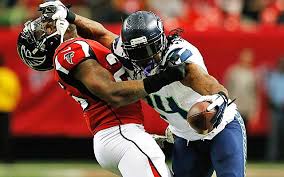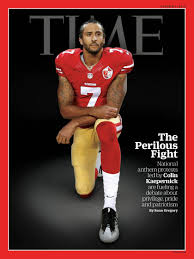Introduction
Violence has always been a problem in societies across the world. It can take many forms (psychological or physical), occur in different places (workplace, online or etc.) and can target anyone for any reason. Where does this originate from? The first instances of violence that we can all probably recall is during our school days seeing bullying and harassment firsthand. Masculinity plays a big part in why people experience bullying and violence in school and in everyday life. My goal, with this essay, is to show how the toxic masculinity stereotype plays a big part in the existence of bullying and violence in school. In addition to that, this essay will also cover the psychological effects on men and how we can help limit the occurrence of bullying. To achieve these goals, the reflection is split into three sections: Homophobia, Power & Toughness and Fatherhood.
Homophobia
According to a study by Bully Free Alberta, the rate of discrimination experienced among students who identify as a member of the LGBTQ is three times higher than heterosexual youth. Homophobia is one of the key issues in masculinity because being homosexual or appearing feminine in any way, in the view of other men, emasculates and humiliates you as a man. This relates to bullying because being seen as different than the rest because you are feminine, or homosexual can lead to being picked on, verbally abused, excluded from activities/groups and more. The reasoning behind this is because being associated with gay/feminine men gives others the idea that you are homosexual/feminine yourself and that scares them because they believe that they will be emasculated and picked on as well by their peers: “As adolescents, we learn that our peers are a kind of gender police, consistently threatening to unmask us as feminine, as sissies” (Kimmel, 148). They hate the fact that being a certain way threatens their manhood, so they resort to being disrespectful and aggressive towards homosexual men to demonstrate to their peers that they are masculine and have nothing to do with them (members of the LGBTQ) which leads to homophobic bullying. “Boys among boys are ashamed to be unmanly” wrote an educator in 1871. The quote says it all; Men are scared of other men. To be able to limit or even stop homophobic bullying, we need to get over these set of “rules” and grow to love and understand each other.
Power & Toughness
Being a man is associated to many stereotypes and beliefs. One of the most prominent and widely known beliefs is that all men should be tough and powerful: “Manhood is equated with power over women, over other men” (Kimmel, 149). They are constantly being observed, scrutinized and judged by our peers for everything that we do. Also, they are always expected to fit in the category of a tough, powerful, masculine, athletic, apathetic individual and constantly being challenged by other men and even women. In other words, they have to “be men”. This directly relates to bullying and violence in schools because that is the behaviour that is expected from them. “One boy will accuse another of being a sissy, to which another boy will respond that he is not a sissy, that the first boy is. They may have to fight it out to see who’s lying. […] And what will his father or older brothers tell him if he chooses to run home crying? It will be some time before he regains any sense of self-respect” (Kimmel, 147). Michael Kimmel gives us an excellent example of the kind of situations that happen in the schoolyard and even in workplaces. As described in the quote, men are forced to be tough and retaliate when threatened by other men in a public setting. If they don’t, they risk losing their manhood and being ridiculed by their peers and even by members of their own family. As a result, many of these situations lead to physical violence to prove who is tougher. To be able to decrease violence and bullying in schools, we really need to drop these global assumptions and let men live their lives without constantly fearing of being under the lens of a microscope.
Fatherhood
Paternal parenting (i.e. fatherhood) is crucial to the upbringing and development of young men and determines what kind of person that man will be probably end up as. With that being said, a negative environment at home (parental conflict, abuse, divorced parents, etc.) has negative psychological effects on young men that lead them to lash out, be aggressive and be violent: “Boys from subsequently divorcing families showed more aggression, more difficulty in controlling impulses, less cooperation, and higher anxiety in novel situations than boys from intact families” (Kilmartin, 190). As they are young, the only places that kids go to regularly (excluding home) is school and that’s where they typically express the emotions that they’ve been building up from home and that can lead to violent behaviour towards other kids and faculty staff. We need to come together and be there for our children emotionally and physically to be able to prevent more cases of violence.
Conclusion
To conclude, masculinity plays a big part in bullying and violence in schools. Personally, it hurts me a lot to see my fellow peers go through this because of the numerous expectations and outside factors that affect their psychological health on a daily basis. We need to unite and demolish these ridiculous guidelines and gender boundaries set by society.

